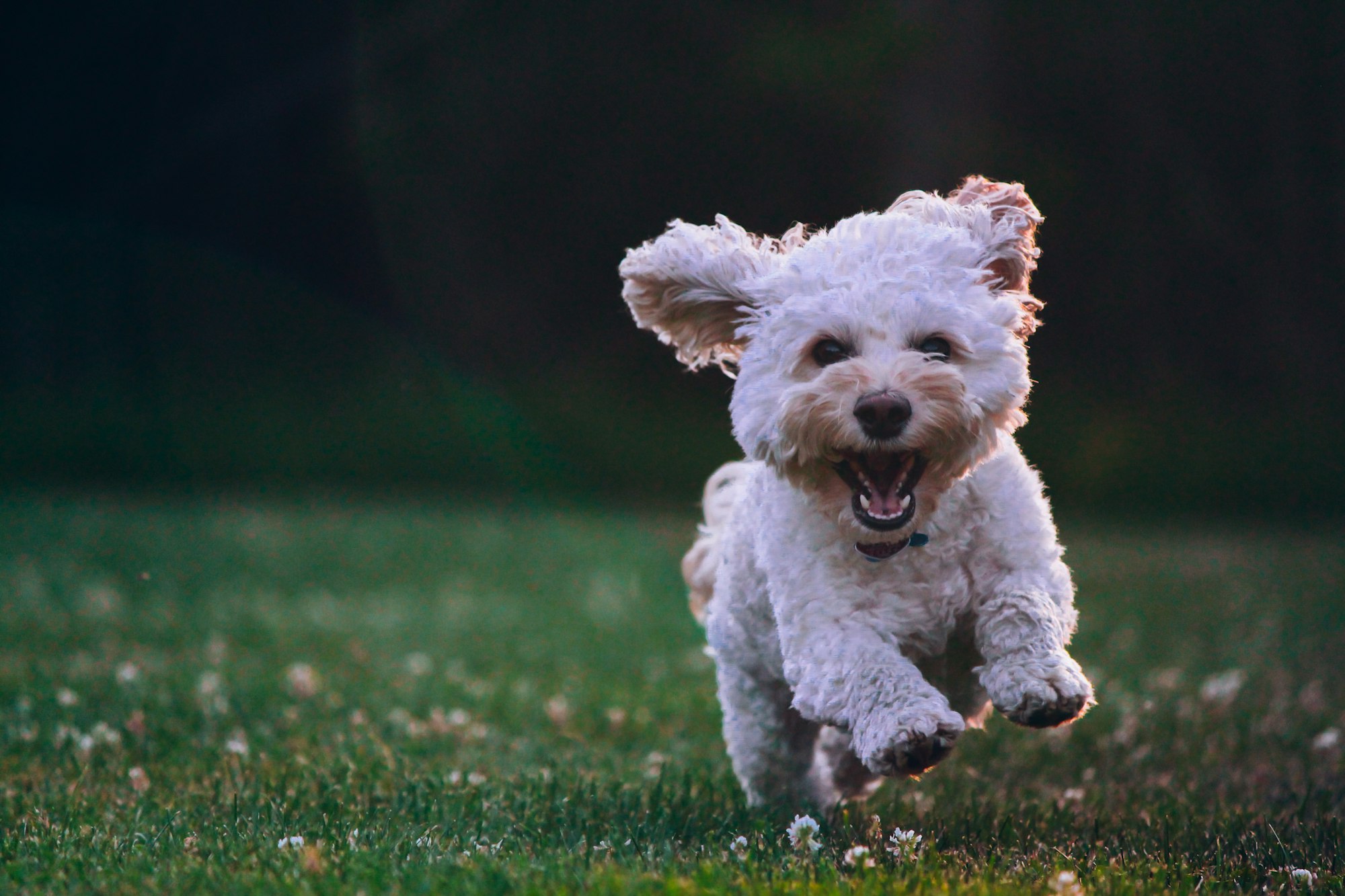We love our furry friends and their happiness is our happiness. Nothing can be more distressing than seeing your loyal companion, your "pooch", unable to go. Yes, we're talking about dog constipation - a common yet often overlooked canine health issue.
Constipation in dogs is similar to what humans experience. Your dog may be straining more than usual, produce hard stools, or not "go" at all. Sometimes, you might find them whining or pacing restlessly due to discomfort. Just like in people, constipation in dogs is not a condition to be ignored.
Why Does Your Dog Get Constipated?
There are many reasons your dog might end up constipated. It could be as simple as dietary changes or as complex as a neurological disorder. Other common causes include lack of exercise, dehydration, ingesting hair from excessive grooming, or swallowing indigestible materials like toys or stones.
In older dogs, a common accessory causing constipation can be a dog stroller. When they are used excessively, they can result in lack of adequate exercise leading to constipation.

Symptoms of Dog Constipation
The primary sign of constipation in dogs is the struggle to defecate. Dogs might crouch or strain for longer periods without producing much. Other symptoms include hard, dry stools, or even mucus or traces of blood in the stool.
In more serious cases, dogs might lose their appetite or show signs of discomfort and lethargy. As a pet owner, it's important to observe your pooch and recognize these signs early.
Natural Remedies for Dog Constipation
Before rushing to the vet, there are some home remedies you could try to alleviate your dog's discomfort.
Hydration
Hydration plays a vital role in maintaining regular bowel movements. A lack of adequate water intake can lead to hard, dry stools. Always ensure your dog has access to clean, fresh water. Investing in a durable dog food container to store kibble and maintaining a clean water bowl can be instrumental in maintaining your dog's health.
Dietary Changes
Adding fiber to your dog's diet can work wonders. Pumpkin is an excellent source of fiber and is generally well-liked by dogs. Another option is adding a little bran to your dog's food. It acts as a natural laxative and helps to soften the stools.
Exercise
Regular exercise stimulates the natural contraction of intestinal muscles, helping your pooch go regularly. Even a daily brisk walk can make a significant difference. If your dog is not a fan of walking, consider using a dog backpack to carry their favorite toys and stimulate their interest in outdoor activities.
Professional Help: When to See a Vet
If natural remedies and dietary changes don't help, it might be time to visit the vet. Prolonged constipation might be a sign of more serious health issues like tumors or neurological disorders.
Vet-Recommended Dog Constipation Cures
Your vet might recommend several treatments for dog constipation depending on the cause. These can include a change in diet, increasing exercise, or even medication to stimulate bowel movements. In severe cases, vets might need to manually remove the blockage.
Preventing Future Constipation in Dogs
Preventing constipation is easier than treating it. A balanced diet, adequate exercise, and proper hydration are crucial. Make sure your dog has plenty of opportunities to relieve themselves during the day. Regular grooming, especially for breeds that shed a lot, can prevent ingestion of hair which can lead to constipation.
In case you're taking your dog for a swim, remember to use a dog life jacket. It not only ensures safety but also provides a good exercise regime that can stimulate bowel movements.
Making Changes for a Happier Pooch
Watching your dog in discomfort can be distressing, but with patience and care, you can help alleviate their constipation. In some cases, something as simple as a chewable bully stick can divert their attention from ingesting indigestible materials, thus preventing constipation.
Safety Measures: Accessorize Wisely
Preventing ingestion of inedible items involves being careful about the accessories we provide our pets. A martingale collar, unlike traditional collars, tightens up when a dog tries to pull away. This prevents them from slipping out of the collar and ingesting harmful substances while you're not looking.
The Role of Diet in Preventing Canine Constipation
We've already mentioned that dietary changes can help treat constipation, but let's dive a little deeper. Just as you are what you eat, your dog's health is significantly impacted by its diet.
Balanced Meals for a Healthy Pooch
The key is to ensure that your dog's meals are balanced and nutritious. Feeding your dog with the right amount of fiber, proteins, carbohydrates, and fats can aid in digestion and keep constipation at bay.
Your pooch's diet should consist of lean proteins such as chicken or beef, healthy grains, fruits, and vegetables that provide the necessary fiber. Remember that all dog foods are not created equal. Take time to read the ingredients list and nutritional information on the packaging before making a choice.
Hydration: An Underrated Aspect
Just like humans, dogs need to stay hydrated for their bodily functions to work efficiently. Water plays a crucial role in digestion, helping to break down food and allow nutrients to be absorbed effectively. If your dog isn't getting enough water, the body may draw it from the colon, leading to harder stools and, consequently, constipation.
To ensure your pooch stays hydrated, make sure there's always fresh water available. If your dog is reluctant to drink enough water, consider adding wet food to their diet or even flavoring the water with a bit of low-sodium chicken broth.
Regular Exercise: Key to Regular Bowel Movements
One of the simplest ways to prevent constipation in dogs is regular exercise. Physical activity helps stimulate normal gut movements, promoting regular bowel activity.
Dogs need different amounts of exercise depending on their age, breed, and health status. Generally, dogs should get at least 1 hour of exercise each day, but dogs bred for hard work may need considerably more.

Regular Vet Check-ups
Regular check-ups at the vet can also help in preventing constipation. The vet can monitor your pooch's overall health, identify any potential issues, and suggest preventive measures or treatments.
It's also an opportunity to discuss your dog's diet and get professional advice about any changes that might be beneficial. If you have any concerns about your dog's bowel habits, a vet check-up is the best time to bring them up.
The Emotional Aspect: Anxiety and Constipation
An often overlooked factor contributing to constipation in dogs is emotional well-being. Yes, your pooch can experience stress and anxiety just like us humans. Moving to a new home, changes in family dynamics, or even the arrival of a new pet can all cause anxiety in your furry friend.
This stress can manifest physically, with one common symptom being constipation. So, it's vital to keep an eye on your pet's behavior as well as their physical health.
Managing Your Dog's Anxiety
Managing your dog's anxiety is a crucial part of preventing constipation. Regular exercise, mental stimulation, and plenty of affection can all help keep your pet's stress levels down.
Consider investing in interactive toys or dog puzzles that challenge your pooch mentally. Regular playtime not only relieves stress but also provides physical exercise, which as we know, is good for bowel health.
An item such as a bully stick can serve as a great tool for distraction and stress relief. It provides your dog with something to focus on, keeping them mentally stimulated while also helping to prevent the ingestion of non-edible items.
Role of Fiber: A Closer Look
We've discussed how dietary changes, particularly an increase in fiber, can help manage and prevent constipation in your dog. But why is fiber so important?
Types of Fiber
There are two types of fiber - soluble and insoluble. Soluble fiber dissolves in water and can help manage diarrhea by absorbing excess water in the gut. Insoluble fiber, on the other hand, doesn't dissolve in water. It adds bulk to the stool, helping it pass more easily.
Most high-fiber foods contain a mix of soluble and insoluble fiber, providing the benefits of both. Foods like pumpkin, sweet potatoes, and bran are all high in fiber and can be beneficial for your dog's digestion.
The Power of Pumpkin
Pumpkin is a powerhouse when it comes to fiber content. It's a wonderful natural remedy for both constipation and diarrhea, thanks to its high soluble fiber content. Most dogs also love the taste of pumpkin, making it an easy addition to their diet.
Consider adding a tablespoon or two of canned pumpkin (not pumpkin pie filling) to your dog's meal to help with constipation. Just make sure it's pure pumpkin and free of any added sugars or spices.
The Importance of Regular Grooming
Regular grooming is particularly important for dogs with long hair or those that shed heavily. Regular brushing removes loose hairs that your dog might otherwise ingest during self-grooming. Ingested hair can lead to hard, dry stools, making it more difficult for your dog to go.
Embracing Technology for Dog Health: The FI Dog Collar
In our fast-paced, technology-driven world, innovation is changing how we take care of our pets. One such breakthrough is the FI dog collar, a smart device that aids in keeping your dog healthy and safe.
How FI Dog Collar Helps
The FI dog collar is more than just a collar. It's a fitness tracker for your dog, helping monitor their activity levels and ensuring they're getting the right amount of exercise to maintain optimal bowel health.
Exercise, as we've discussed, is a crucial aspect of preventing constipation in dogs. Regular movement helps stimulate the intestines and promote healthy digestion. The FI collar tracks your dog's steps, providing valuable data on their activity levels. If your pooch isn't moving as much as they should be, the FI collar will let you know.
It's a fantastic tool for pet owners to monitor and maintain their dog's exercise regimen, helping to prevent health issues such as constipation.
Lost Dog? FI Collar to the Rescue
Beyond the health benefits, the FI collar features a built-in GPS, making it an effective tool for locating lost dogs. This feature not only provides peace of mind for pet owners but also indirectly contributes to a dog's digestive health.
How? Stress and anxiety, as we discussed earlier, can lead to constipation in dogs. The potential of getting lost and the anxiety it creates can trigger digestive issues in your dog. The FI collar, with its GPS feature, reduces the likelihood of such stressful events, contributing to your pooch's overall well-being.
The Tech-Savvy Way to Care
The FI collar represents how technology can aid in pet care. It aligns with the holistic approach towards preventing and treating constipation in dogs that we've explored in this article. By ensuring that your pooch is getting the right amount of exercise and reducing potential stressors, the FI collar fits perfectly into the larger picture of maintaining your dog's digestive health.
In conclusion, caring for a pet is a multifaceted responsibility. With devices like the FI collar, we're better equipped than ever to ensure our furry friends' health and happiness. After all, there's no greater joy than seeing our loyal companions bounding around, tail wagging, free of discomfort and full of life.

Conclusion:
In conclusion, caring for a constipated dog involves an all-encompassing approach. It starts with maintaining a balanced diet enriched with fiber and ensuring proper hydration. Regular exercise, mental stimulation, and emotional well-being are equally crucial, with tools like the FI collar providing assistance.
Regular grooming, vet check-ups, and managing your dog's anxiety levels also play a significant role in preventing constipation. By integrating these elements, from providing a bully stick for distraction to storing meals in a dog food container for freshness, we can ensure our pooches are not only free from constipation but are leading happy, healthy lives.
FAQs
Q1: What can I give my dog for constipation?
A: You can introduce more fiber into your dog's diet, for example, by adding pumpkin or wheat bran to their meals. Physical activity is also crucial in alleviating constipation. However, in severe cases, it's best to consult a vet.
Q2: Can over-the-counter medicine be given to a constipated dog?
A: While some over-the-counter remedies might help, it's important to consult your vet before giving any medications to your pet. They can recommend suitable treatments based on your dog's specific needs and medical history.
Q3: How can the FI collar help with my dog's constipation?
A: The FI collar helps track your dog's physical activity, which is crucial in stimulating healthy bowel movements. Also, by reducing potential stressors, like the fear of your dog getting lost, it can indirectly aid digestive health.
Q4: How can I prevent constipation in my dog?
A: Preventing constipation involves several factors such as providing a balanced, fiber-rich diet, ensuring your dog gets regular exercise, and managing stress levels. Regular vet check-ups can also help monitor and maintain your pooch's digestive health.
Q5: Can stress and anxiety cause constipation in dogs?
A: Yes, stress and anxiety can lead to physical symptoms like constipation in dogs. Ensuring your dog's emotional well-being is as important as taking care of their physical health.
Q6: How important is hydration in preventing constipation in dogs?
A: Hydration is crucial for your dog's digestive health. Water helps in breaking down food and allows for the efficient absorption of nutrients. Dehydration can lead to harder stools and consequently, constipation.
Q7: Are there any specific dog breeds that are more prone to constipation?
A: While any dog can experience constipation, breeds with long hair or those that are heavily built may be more prone to constipation due to the potential ingestion of hair during self-grooming. Regular grooming can help alleviate this issue.




